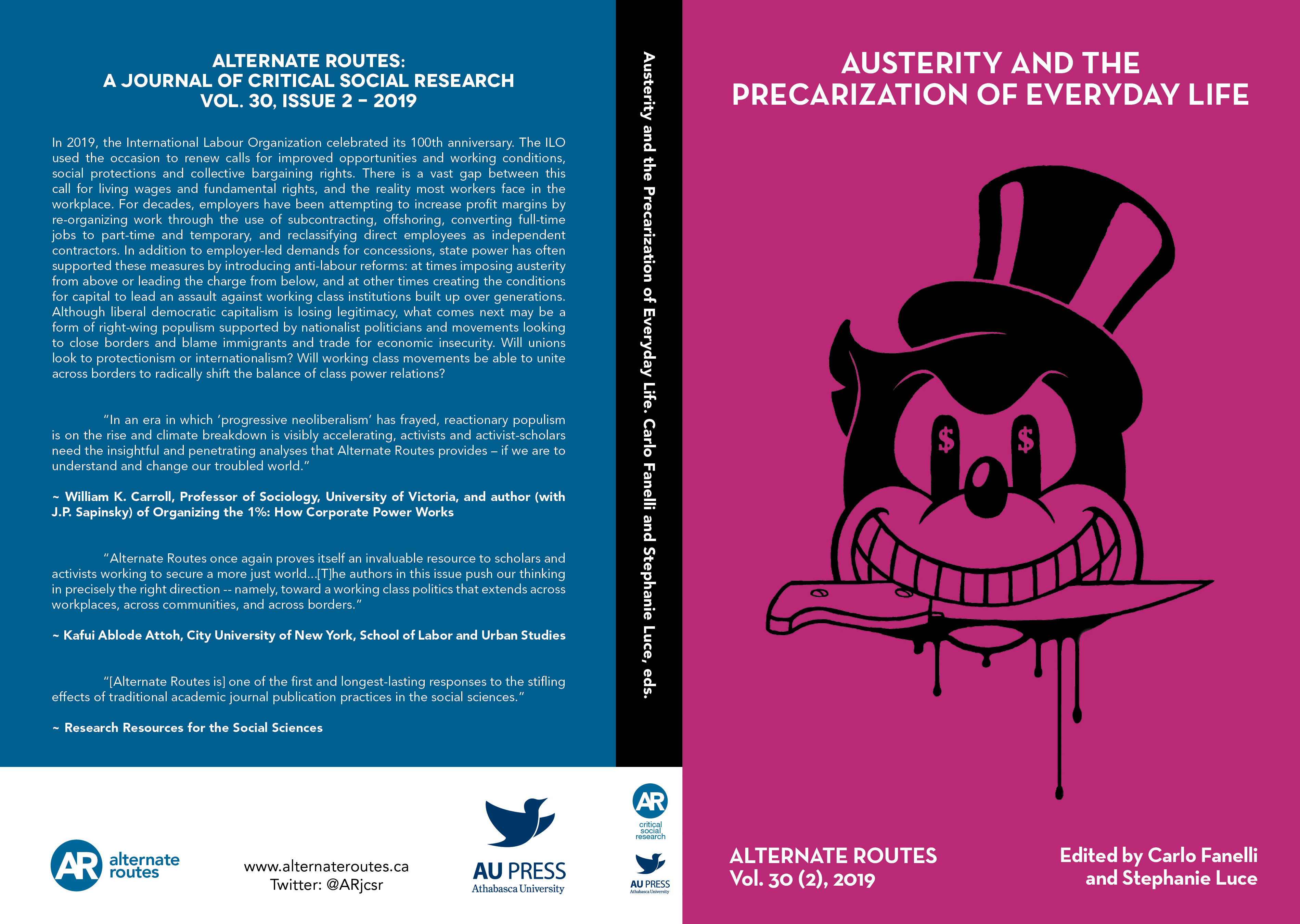Social Innovation Labs: A Neoliberal Austerity Driven Process or Democratic Intervention?
Keywords:
Social Innovation, Austerity, Neoliberalism, New Public Management, Social Impact BondsAbstract
Social Innovation Labs (SILs) are a recent policymaking development that are spreading rapidly in many different countries. SILs are said to address difficult and complex social policy problems that have been resistant to solutions. To date, there has been limited scholarly analysis of SIL development, with many questions in need of critical policy assessment. This paper seeks to conceptualize SILs in the Canadian context by mapping the sector and exploring how these labs fit within the broader ecosystem of policy innovation. We consider why SILs have become so popular in this particular socio-political moment. We contend that the SIL trend speaks to a dual and contradictory desire on the part of governments for more participatory policymaking and cost saving. Thus, while SILs may create opportunities for the democratization of social policy, they are also motivated by efforts to do more with less in an environment shaped by austerity and neoliberalism. This suggests that SILs could equally result in the marketization and depoliticization of social policy. This paper highlights these tensions conceptually with the purpose of guiding empirical studies that explore how these contradictions may manifest in policy practice and perhaps offer openings for policy that addresses both the roots and symptoms of complex social policy problems.
Downloads
Published
How to Cite
Issue
Section
License
Articles are published in Alternate Routes: A Journal of Critical Social Research under the Creative Commons "Attribution/Non-Commercial/No Derivative Works" Canada licence.
The copyright for the articles published in this journal is retained by the authors, with first publication rights granted to the journal. By virtue of their appearance in this open access journal, articles may be used, with proper attribution, in educational and other non-commercial, not-for-profit settings. The submission of a manuscript to Alternate Routes will be taken to mean that the author understands and agrees to the following:
- the manuscript represents original work not previously published;
- the manuscript is not being considered elsewhere for publication in the same language (publication elsewhere in an alternate language does not preclude acceptance of submission to Alternate Routes);
- appropriate written copyright permissions have been secured for republication of any copyrighted material contained in the manuscript;
- copyright for this article is retained by the author, with first publication rights granted to Alternate Routes;
- by virtue of its appearance in this open access journal, it is understood that the article is freely available for use, with proper attribution, for educational and other non-commercial purposes;
- reuse of the article for commercial purposes by anyone other than the author requires permission of the author;
- the author agrees to cite Alternate Routes as a source whenever h/she later republishes or reuses the article in other platforms.


